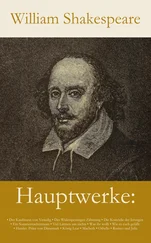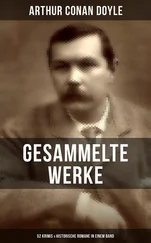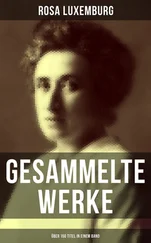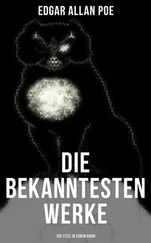CASSIUS.
Those that have known the earth so full of faults.
For my part, I have walk’d about the streets,
Submitting me unto the perilous night;
And, thus unbraced, Casca, as you see,
Have bared my bosom to the thunder-stone;
And when the cross blue lightning seem’d to open
The breast of heaven, I did present myself
Even in the aim and very flash of it.
CASCA.
But wherefore did you so much tempt the Heavens?
It is the part of men to fear and tremble,
When the most mighty gods by tokens send
Such dreadful heralds to astonish us.
CASSIUS.
You are dull, Casca;and those sparks of life
That should be in a Roman you do want,
Or else you use not. You look pale and gaze,
And put on fear and cast yourself in wonder,
To see the strange impatience of the Heavens:
But if you would consider the true cause
Why all these fires, why all these gliding ghosts,
Why birds and beasts,from quality and kind;
Why old men, fools, and children calculate;—
Why all these things change from their ordinance,
Their natures, and preformed faculties
To monstrous quality;—why, you shall find
That Heaven hath infused them with these spirits,
To make them instruments of fear and warning
Unto some monstrous state. Now could I, Casca,
Name to thee a man most like this dreadful night;
That thunders, lightens, opens graves, and roars,
As doth the lion in the Capitol;
A man no mightier than thyself or me
In personal action; yet prodigious grown,
And fearful, as these strange eruptions are.
CASCA.
‘Tis Caesar that you mean; is it not, Cassius?
CASSIUS.
Let it be who it is: for Romans now
Have thews and limbs like to their ancestors;
But, woe the while! our fathers’ minds are dead,
And we are govern’d with our mothers’ spirits;
Our yoke and sufferance show us womanish.
CASCA.
Indeed they say the senators tomorrow
Mean to establish Caesar as a king;
And he shall wear his crown by sea and land,
In every place save here in Italy.
CASSIUS.
I know where I will wear this dagger then;
Cassius from bondage will deliver Cassius:
Therein, ye gods, you make the weak most strong;
Therein, ye gods, you tyrants do defeat:
Nor stony tower, nor walls of beaten brass,
Nor airless dungeon, nor strong links of iron
Can be retentive to the strength of spirit;
But life, being weary of these worldly bars,
Never lacks power to dismiss itself.
If I know this, know all the world besides,
That part of tyranny that I do bear
I can shake off at pleasure.
[Thunders still.]
CASCA.
So can I:
So every bondman in his own hand bears
The power to cancel his captivity.
CASSIUS.
And why should Caesar be a tyrant then?
Poor man! I know he would not be a wolf,
But that he sees the Romans are but sheep:
He were no lion, were not Romans hinds.
Those that with haste will make a mighty fire
Begin it with weak straws: what trash is Rome,
What rubbish, and what offal, when it serves
For the base matter to illuminate
So vile a thing as Caesar! But, O grief,
Where hast thou led me? I perhaps speak this
Before a willing bondman: then I know
My answer must be made; but I am arm’d,
And dangers are to me indifferent.
CASCA.
You speak to Casca; and to such a man
That is no fleering tell-tale. Hold, my hand:
Be factious for redress of all these griefs;
And I will set this foot of mine as far
As who goes farthest.
CASSIUS.
There’s a bargain made.
Now know you, Casca, I have moved already
Some certain of the noblest-minded Romans
To undergo with me an enterprise
Of honorable-dangerous consequence;
And I do know by this, they stay for me
In Pompey’s Porch: for now, this fearful night,
There is no stir or walking in the streets;
And the complexion of the element
Is favor’d like the work we have in hand,
Most bloody, fiery, and most terrible.
CASCA.
Stand close awhile, for here comes one in haste.
CASSIUS.
‘Tis Cinna; I do know him by his gait;
He is a friend.—
[Enter Cinna.]
Cinna, where haste you so?
CINNA.
To find out you. Who’s that? Metellus Cimber?
CASSIUS.
No, it is Casca, one incorporate
To our attempts. Am I not stay’d for, Cinna?
CINNA.
I am glad on’t. What a fearful night is this!
There’s two or three of us have seen strange sights.
CASSIUS.
Am I not stay’d for? tell me.
CINNA.
Yes,
You are. O Cassius, if you could but win
The noble Brutus to our party,—
CASSIUS.
Be you content. Good Cinna, take this paper,
And look you lay it in the praetor’s chair,
Where Brutus may but find it; and throw this
In at his window; set this up with wax
Upon old Brutus’ statue: all this done,
Repair to Pompey’s Porch, where you shall find us.
Is Decius Brutus and Trebonius there?
CINNA.
All but Metellus Cimber, and he’s gone
To seek you at your house. Well, I will hie
And so bestow these papers as you bade me.
CASSIUS.
That done, repair to Pompey’s theatre.—
[Exit Cinna.]
Come, Casca, you and I will yet, ere day,
See Brutus at his house: three parts of him
Is ours already; and the man entire,
Upon the next encounter, yields him ours.
CASCA.
O, he sits high in all the people’s hearts!
And that which would appear offense in us,
His countenance, like richest alchemy,
Will change to virtue and to worthiness.
CASSIUS.
Him, and his worth, and our great need of him,
You have right well conceited. Let us go,
For it is after midnight; and, ere day,
We will awake him, and be sure of him.
[Exeunt.]
German
Table of Contents
Table of Contents
Rome. BRUTUS’S orchard.
[Enter Brutus.]
BRUTUS.
What, Lucius, ho!—
I cannot, by the progress of the stars,
Give guess how near to day.—Lucius, I say!—
I would it were my fault to sleep so soundly.—
When, Lucius, when! Awake, I say! What, Lucius!
[Enter Lucius.]
LUCIUS.
Call’d you, my lord?
BRUTUS.
Get me a taper in my study, Lucius:
When it is lighted, come and call me here.
LUCIUS.
I will, my lord.
[Exit.]
BRUTUS.
It must be by his death: and, for my part,
I know no personal cause to spurn at him,
But for the general. He would be crown’d:
How that might change his nature, there’s the question:
It is the bright day that brings forth the adder;
And that craves wary walking. Crown him?—that:
And then, I grant, we put a sting in him,
That at his will he may do danger with.
Th’ abuse of greatness is, when it disjoins
Remorse from power; and, to speak truth of Caesar,
I have not known when his affections sway’d
More than his reason. But ‘tis a common proof,
That lowliness is young ambition’s ladder,
Whereto the climber-upward turns his face;
But, when he once attains the upmost round,
He then unto the ladder turns his back,
Looks in the clouds, scorning the base degrees
By which he did ascend: so Caesar may;
Then, lest he may, prevent. And, since the quarrel
Will bear no color for the thing he is,
Fashion it thus,—that what he is, augmented,
Читать дальше












